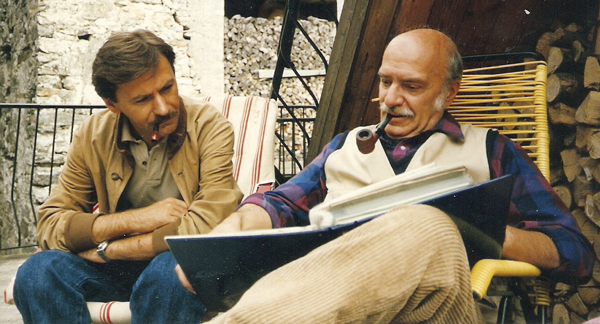Ettore Bianchi: a Brilliant Life in the Aluminium Industry
Ettore Bianchi was a reference figure for the Italian aluminium industry and a reference point for all the professionals in this sector. This is how Carlo Gennari remembers him.
After contributing to aluminium’s best season, just before Christmas, Ettore Bianchi passed away. Occasionally, even as a joke, I called him the “Senator of aluminium”; I don’t think he liked it, but it is what I always thought, all the more after knowing him better.
The first meeting with Ettore dates back to 1977, when I was the young marketing manager of SAVA Aluminium, Foundry alloy division, and he was the mature director of Alcan in Borgofranco d’Ivrea.
We were competitors, I was the highly motivated and institutional supporter of primary alloys obtained using electrolytic aluminium while he was a supporter of “secondary” product with bars having a very carefully designed analytical composition, among the best on the market. Our clients were foundries, there was a moment when we exchanged visits to the respective production plants: Ettore welcomed us in Borgofranco like an English gentleman hosting fiends in his country chalet, with a pipe and autumn clothes, easy-going and with such a special friendliness as to make even electrolytic purists like us feel at ease, although we raised our eyebrows in front of the scrap metal, warning about their uncontrolled content of impurity.
In those years with the entirely Italian speedy development of foundries producing aluminium wheels for the automotive industry, we both found ourselves in Bologna for a first important convention on that topic: for me it was almost the first day of work in the company.
That is when I understood where I had ended up: a metal with infinite potential, in a magic moment, among wonderful professionals. Ettore absolutely did not let down my expectations, but I was too young to converse fluently in the various groups which were forming. At any rate I spoke to him and I thought that behind his remarkable friendliness there was also a sort of study of the opponent.
Gradually I became more and more a part of the environment. I lived a few yards away from Via Sansovino in Milan and in the evening on the way home it was compulsory to stop in the “den” of Alluminio magazine where, along with such resident stars as Arrigo Perrone and Frely Sacchi one could find all, and I mean all, of the big names of the industry as well as the latest and hottest news on the market. It was easy to find racehorses there coming from the ISML stud farm in Novara.
Even Ettore used to drop by in the magazine’s offices and then little improvised congresses would take place with niche topics which were very useful for me to consolidate or even create material to develop in the company on the following day. Ettore was always a lively supporter of the role of the magazine as a driving enter for the circulation of knowledge and often the clever Frely used to derive important inspiration form these informal reunions to prepare the index of the following issue of the magazine.
I met Ettore again, after a significant experience in other industries, in the beginning of the Nineties at a trade show in Parma. Back from Spain, I had become self-employed and he was a free thinker who carried out market researches and wrote articles for magazines. He suggested an initial cooperation for a project he had been entrusted with. From then on we worked together for many years focusing closely on many aspects of Italian foundries, but even more broadly on various aspects of the value chain, thanks to his knowledge and the excellent reputation he enjoyed internationally.
Ettore had an innate spirit driving him to seek in-depth analyses and he often managed to derive interesting elements even just from his intuitions which gradually turned into new lines of inquiry, always very rich in original elements. Gifted with a great memory, he created by hand, before the age of Excel, huge spreadsheets which enabled him to synthesize and above all to quantify the phenomenon he was analyzing. One of his qualities, unfortunately rare, concerned his great readiness to support young persons who were writing their theses or who submitted projects to him in their professional field. Ettore would leave no stone unturned to collect documents or to organize series of meetings with other experts in the industry. The aluminium industry includes many professionals who certainly remember this and who know that Ettore would follow them over time, asking them about the goals they achieved.
We completed together various analyses for magazines and for associations, part of the activity was devoted to the continuous update of our database which, although we rarely used it, enabled Ettore to sleep soundly, since at any given time he needed to be able to confirm how many foundries there were in Italy, subdivided by casting technology, to quantify the production of castings and to know whether and when Germany had overtaken local production.
Ettore is the copyright owner for the “salmon technology”, the innovative approach which leads a market analyst to study the flow of data in a certain direction and subsequently to test and validate them going against the flow, that is, starting from the end and going towards the source. With Ettore we tackled daring and creative upstream climbing, I hope this helped the quality of our work.
Our professional relationship, which in itself was already very fulfilling, led to a great friendship which strengthened during these last years. Ettore, a glutton for news and updates, shifted his focus from casting and foundry relocation to politics and economics, without losing any of the pleasant sharpness of his analyses and evaluations.
This slightly unusual account of Ettore Bianchi should not come to an end without my warmest appreciation of his authoritativeness, sensitivity, readiness, honesty and capability to involve others which this purebred from Piedmont always expresses and whom I had the privilege to know along with Mrs Carla, his inimitable lifetime companion.
Carlo Gennari

